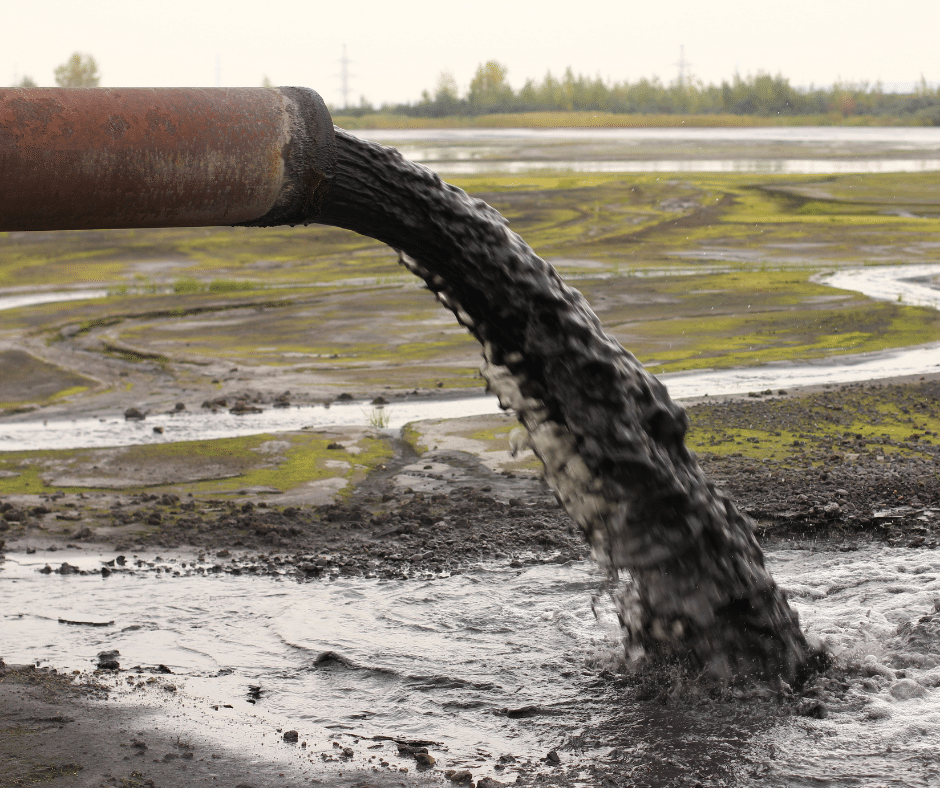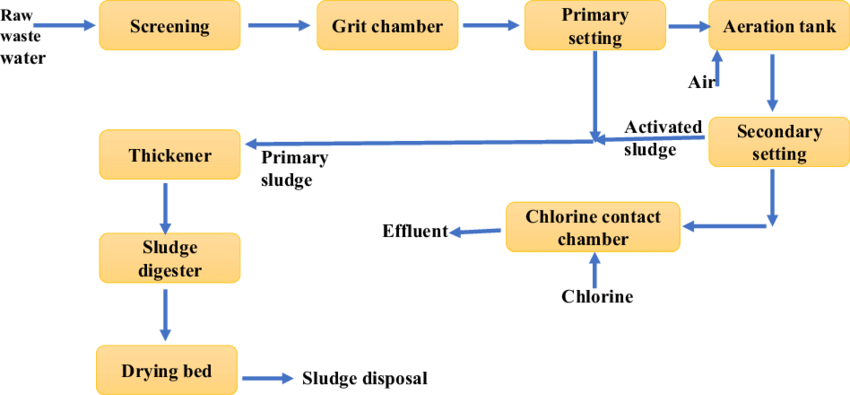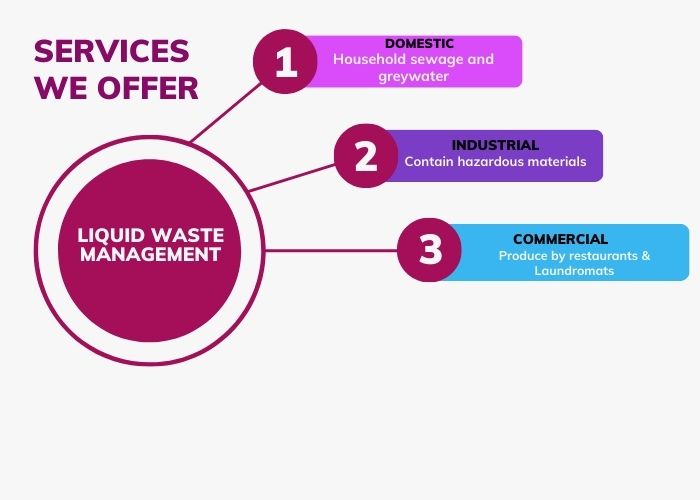Liquid waste management involves the collection, treatment, and disposal of liquid waste to prevent environmental contamination. Effective management ensures public health and environmental safety.
Managing liquid waste efficiently is crucial for maintaining clean water sources and a healthy environment. Liquid waste includes sewage, industrial effluents, and agricultural runoff. Proper treatment methods like filtration, sedimentation, and biological treatment help reduce pollutants. Communities must adopt sustainable practices and modern technologies to handle liquid waste responsibly.
This not only safeguards public health but also preserves natural ecosystems. Implementing stringent regulations and raising awareness about waste management can lead to significant improvements. Regular monitoring and maintenance of waste treatment facilities ensure their optimal performance. Effective liquid waste management is essential for a sustainable future.
Introduction To Liquid Waste Management
Liquid waste management is crucial for keeping our environment clean. It involves the collection, treatment, and disposal of liquid waste. This waste can come from homes, industries, and businesses. Proper management helps prevent pollution and protects public health.
Importance Of Waste Management
Effective liquid waste management ensures the safety of water sources. It reduces the risk of harmful pollutants entering the environment. Clean water is vital for all living beings, including humans, animals, and plants. It also helps in conserving water by treating and reusing waste.
- Protects public health
- Prevents water pollution
- Conserves natural resources
Challenges In Managing Liquid Waste
Managing liquid waste presents several challenges. One major issue is the high cost of treatment and disposal. Another challenge is the lack of infrastructure in many areas. This makes it hard to collect and treat waste efficiently.
| Challenge | Description |
|---|---|
| High Costs | Treatment and disposal are expensive. |
| Poor Infrastructure | Inadequate facilities for waste collection and treatment. |
| Public Awareness | Lack of knowledge about the importance of waste management. |
Public awareness is also a significant challenge. Many people do not understand the importance of proper waste disposal. Educating the public can help in better waste management practices.
Types Of Liquid Waste
Liquid waste management is crucial for maintaining a healthy environment. Understanding the types of liquid waste helps us manage them better. Here, we explore the main categories: domestic and industrial liquid waste.
Domestic Liquid Waste
Domestic liquid waste comes from households. This includes wastewater from kitchens, bathrooms, and laundry rooms. Common examples include:
- Used water from sinks
- Toilet water
- Greywater from showers and bathtubs
Managing domestic liquid waste is vital for public health. Proper disposal prevents pollution and disease. Wastewater treatment plants play a key role. They filter and clean household water before releasing it.
Industrial Liquid Waste
Industrial liquid waste is generated by factories and manufacturing plants. This type of waste varies based on the industry. Common sources include:
- Chemical manufacturing
- Textile production
- Food processing
Industrial liquid waste often contains harmful chemicals. These can be toxic to humans and wildlife. Effective treatment and disposal methods are crucial. Industries use specialized processes to manage this waste.
Here's a quick comparison of domestic and industrial liquid waste:
| Type of Liquid Waste | Source | Common Examples | Management Methods |
|---|---|---|---|
| Domestic Liquid Waste | Households | Sinks, toilets, showers | Wastewater treatment plants |
| Industrial Liquid Waste | Factories, plants | Chemicals, dyes, food waste | Specialized treatment processes |
Environmental Impact
Liquid waste management plays a crucial role in safeguarding our environment. Improper disposal of liquid waste can lead to severe environmental hazards. Let's explore the environmental impact of liquid waste management.
Water Pollution
Liquid waste often contains harmful chemicals and pathogens. These contaminants can seep into water bodies, causing water pollution. Polluted water can harm aquatic life and disrupt ecosystems.
Water pollution can also affect human health. Contaminated water can lead to diseases such as cholera and dysentery. Proper liquid waste management helps to keep our water sources clean and safe.
Some common sources of water pollution include:
- Industrial waste
- Sewage discharge
- Agricultural runoff
Effective treatment and disposal of liquid waste can prevent these pollutants from entering water bodies.
Soil Contamination
Improper disposal of liquid waste can lead to soil contamination. Contaminants in liquid waste can seep into the soil, affecting its quality and fertility.
Soil contamination can harm plants and reduce agricultural productivity. Contaminated soil can also pose risks to animals and humans who come into contact with it.
The following are common effects of soil contamination:
- Reduced soil fertility
- Harm to plant life
- Health risks to humans and animals
Proper liquid waste management practices can help to mitigate these risks and protect the environment.
Current Waste Management Practices
Effective liquid waste management is crucial for a healthy environment. The methods used can significantly impact our ecosystems. Let's explore the current waste management practices.
Traditional Methods
Traditional methods of liquid waste management have been in practice for years. These methods often involve basic techniques.
- Septic tanks: Used in rural areas to treat household wastewater.
- Landfills: Liquid waste is sometimes dumped into landfills.
- Open drainage systems: Common in many developing regions.
While these methods are simple, they often lead to pollution. Open drainage can contaminate water sources. Landfills can leak hazardous substances into the soil.
Modern Techniques
Modern techniques for liquid waste management are more advanced. They focus on sustainability and reducing environmental impact.
- Biological treatment: Uses microbes to break down waste.
- Chemical treatment: Involves adding chemicals to neutralize waste.
- Membrane filtration: Filters waste through special membranes.
These methods are more efficient and environmentally friendly. Biological treatment is natural and sustainable. Chemical treatment can quickly neutralize harmful substances. Membrane filtration provides high levels of purification.
| Traditional Methods | Modern Techniques |
|---|---|
| Septic tanks | Biological treatment |
| Landfills | Chemical treatment |
| Open drainage systems | Membrane filtration |
Modern techniques offer better solutions for managing liquid waste. They help protect our environment and promote health.
Innovative Technologies
Liquid waste management is a crucial aspect of environmental sustainability. Innovative technologies are revolutionizing this sector. These advancements ensure efficient and eco-friendly solutions. Let's explore some groundbreaking technologies in liquid waste management.
Bioremediation
Bioremediation utilizes microorganisms to treat polluted water. These tiny organisms break down harmful substances. They convert pollutants into less harmful products. This method is natural and eco-friendly.
Microorganisms such as bacteria and fungi are commonly used. They feed on organic waste and contaminants. This process is highly effective for treating industrial wastewater.
Table showing types of microorganisms used in bioremediation:
| Type of Microorganism | Function |
|---|---|
| Bacteria | Break down organic compounds |
| Fungi | Decompose complex pollutants |
| Algae | Absorb heavy metals |
Membrane Filtration
Membrane filtration is another innovative technology. It involves a physical barrier to remove impurities. This technique separates contaminants from water.
Membrane filtration uses different types of membranes. Each type targets specific pollutants. Here are some common types:
- Microfiltration: Removes large particles and bacteria.
- Ultrafiltration: Filters out viruses and small particles.
- Nanofiltration: Targets dissolved substances and organic molecules.
- Reverse Osmosis: Eliminates salts and most impurities.
This method is widely used in wastewater treatment plants. It ensures high-quality effluent suitable for reuse.

Credit: prosservices.com
Government Regulations
Understanding the importance of government regulations in liquid waste management is crucial. These regulations ensure that waste disposal is safe and environmentally friendly. They aim to prevent contamination, protect public health, and conserve water resources.
National Policies
National policies dictate how liquid waste should be managed within a country. These policies often include:
- Standards for wastewater treatment
- Permits for industrial discharge
- Guidelines for hazardous waste handling
Each country has its own set of rules and regulations. In the United States, the Environmental Protection Agency (EPA) enforces the Clean Water Act. This act sets limits on pollutants discharged into water bodies. It also requires wastewater treatment facilities to meet specific standards.
In India, the Central Pollution Control Board (CPCB) oversees liquid waste management. It sets guidelines for the treatment and disposal of wastewater. The focus is on preventing water pollution and ensuring safe drinking water.
International Standards
International standards provide a framework for countries to manage liquid waste. These standards ensure consistency and safety across borders.
The World Health Organization (WHO) sets global guidelines for water quality. These guidelines help countries maintain safe drinking water standards. They also provide recommendations for wastewater treatment.
The ISO 14000 series includes standards for environmental management. These standards help organizations minimize their environmental impact. They cover everything from waste management to energy use.
By adhering to these international standards, countries can improve their waste management practices. This helps protect the environment and public health.
Community Involvement
Community involvement is essential for effective liquid waste management. Engaging the public can lead to better practices and cleaner environments. Here, we discuss how communities can help through public awareness campaigns and local initiatives.
Public Awareness Campaigns
Public awareness campaigns educate people about liquid waste management. These campaigns highlight the importance of proper disposal methods. They inform the public about the dangers of improper waste disposal.
Effective campaigns use various media channels:
- Social Media
- Local Newspapers
- Community Radio
- Workshops and Seminars
Campaigns can include:
- Infographics on proper disposal techniques
- Videos showing the impact of liquid waste on the environment
- Interactive sessions for questions and answers
Engaging visuals and simple language can make these campaigns more effective. Consistent messaging helps reinforce the importance of liquid waste management.
Local Initiatives
Local initiatives play a significant role in managing liquid waste. These initiatives can be organized by community groups, schools, and local businesses.
Some successful local initiatives include:
| Initiative | Description |
|---|---|
| Community Clean-Up Days | Volunteers gather to clean local water bodies and surrounding areas. |
| School Programs | Educational programs in schools teach children about proper waste disposal. |
| Business Partnerships | Local businesses sponsor waste management projects and provide resources. |
These initiatives encourage local residents to take action. They foster a sense of responsibility towards the environment.
Creating a platform for community members to voice their concerns is important. This ensures everyone has a role in maintaining a clean and healthy environment. Regular meetings and feedback sessions can help improve local initiatives.

Credit: shapiroe.com
Future Trends
Liquid waste management is evolving rapidly. Emerging technologies and innovative practices are paving the way for a sustainable future. Let's explore the future trends in liquid waste management, focusing on smart waste management systems and sustainable practices.
Smart Waste Management Systems
Smart waste management systems are transforming liquid waste management. These systems use advanced technology to monitor and manage waste efficiently. Sensors and IoT devices track waste levels in real-time, reducing the risk of overflow.
AI algorithms analyze data to predict waste trends. This helps in optimizing collection schedules and routes. Smart systems also help in identifying hazardous waste, ensuring safe disposal. These technologies reduce costs and improve efficiency.
| Technology | Benefits |
|---|---|
| Sensors | Real-time tracking, prevents overflow |
| IoT Devices | Efficient monitoring, data collection |
| AI Algorithms | Predict trends, optimize schedules |
Sustainable Practices
Adopting sustainable practices is crucial for managing liquid waste. Reusing and recycling wastewater reduces environmental impact. Advanced treatment processes make this possible. Biological treatment and membrane filtration are popular methods.
Using eco-friendly chemicals in treatment processes is another key trend. These chemicals are less harmful to the environment. They make the treatment process more sustainable. Implementing water-saving technologies in industries can also reduce liquid waste.
- Reuse and recycle wastewater
- Advanced treatment processes
- Eco-friendly chemicals
- Water-saving technologies
These sustainable practices ensure a cleaner and healthier environment. They also contribute to the efficient use of resources.

Credit: shapiroe.com
Frequently Asked Questions
What Is Liquid Waste Management?
Liquid waste management involves the process of collecting, treating, and disposing of liquid waste. This ensures environmental safety and public health. Proper handling reduces pollution.
Why Is Liquid Waste Management Important?
Effective liquid waste management prevents contamination of water sources. It protects ecosystems and human health. It ensures regulatory compliance and sustainable waste disposal.
What Are The Types Of Liquid Waste?
Liquid waste includes domestic sewage, industrial effluents, and stormwater runoff. Each type requires specific treatment methods. Proper classification helps in effective waste management.
How Is Liquid Waste Treated?
Liquid waste treatment involves physical, chemical, and biological processes. These methods remove contaminants and pollutants. Treatment ensures the safe disposal of liquid waste.
Conclusion
Effective liquid waste management is essential for a sustainable future. Implementing proper disposal methods protects our environment and health. By understanding and adopting best practices, we can minimize harmful impacts. Let’s commit to responsible waste management and contribute to a cleaner, safer world.
Make a difference today for a better tomorrow.
Zero Waste Services' Approach to Liquid Waste Management

Our approach to liquid waste management is comprehensive and sustainable:
Specialized Expertise: Our experienced team specializes in the safe and compliant handling of various liquid waste materials, ensuring proper containment and disposal.
Resource Recovery: We actively seek opportunities for resource recovery, extracting valuable materials from liquid waste for recycling or reuse.
Regulatory Adherence: Zero Waste Services assists clients in navigating complex regulatory requirements, ensuring that all waste management activities comply with legal standards.
Why Choose Zero Waste Services for Liquid Waste Management?
Zero Waste Services' commitment to responsible liquid waste management sets us apart as leaders in waste and recycling services. By choosing our services, you not only ensure compliance with regulations but also actively contribute to waste reduction, resource conservation, and environmental protection.
In essence, liquid waste management is a critical aspect of environmental stewardship and regulatory compliance. Zero Waste Services is dedicated to providing sustainable solutions that prioritize safety, resource recovery, and responsible waste handling. Join us in promoting sustainable practices in liquid waste management, and together, we can work towards a cleaner and greener future.